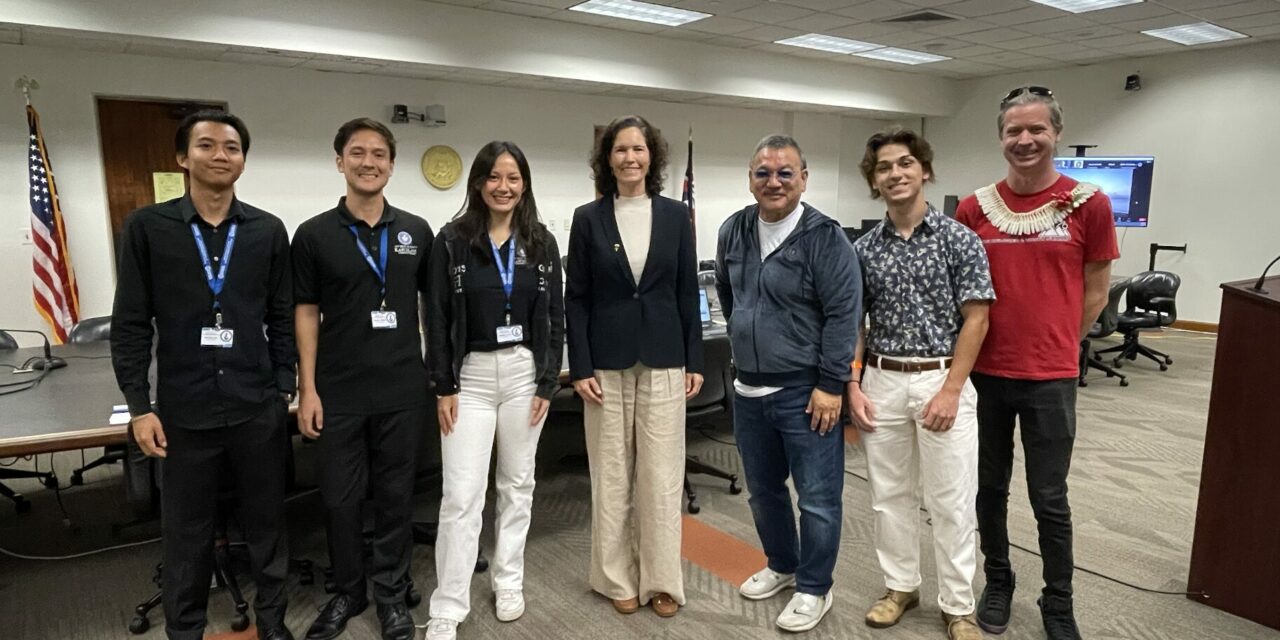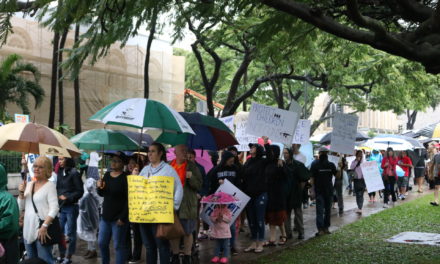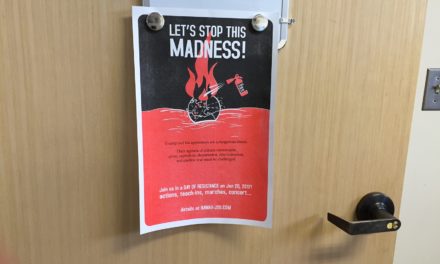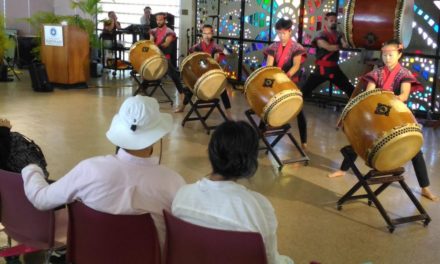Student Congress members (from left) Ratana Kim, Kimberly Song, and Zachary Gibson spoke with Rep. Lisa Marten and Rep. John Mizuno at the Keiki Caucus. (Photo courtesy of Kimberly Song)
By Cameron Enomoto | Staff Writer
On December 1, 2023, three KCC Student Congress members attended the Keiki Caucus, a collaboration with Hawaiʻi state legislators, community leaders, and youth, at the state Capitol to advocate for lower summer school tuition for resident students across all seven community colleges within the University of Hawaiʻi system. The Keiki Caucus had an audience of approximately 30 people with an additional 40 people joining via Zoom. In total, 17 bills were proposed by various community organizations to address the health and welfare of children across Hawaiʻi.
This is the culmination of a legacy project that began in Fall 2022 with Student Congress President Micah Tutuvanu and Vice President Jenny Brown. Former President Kimberly Song and current Vice President Zachary Gibson shared their findings to highlight the inconsistency of tuition rates in the fall and spring semesters. Currently, Hawaiʻi resident students pay $131/credit during the fall and spring semesters and $248/credit during summer sessions. This means that a three-credit summer course is $351 more than it would be in the fall or spring.
“The re-enrollment rate at KCC, so people who keep taking classes after the summer break, is super low,” Song said. “We always lose about 46% of our students because the summer break is too long and people lose their momentum. They can’t take classes during the summer either because it’s too expensive.”
The proposed bill asks for funding for a pilot program with an annual allocation of $3.5 million for three fiscal years (2025, 2026, and 2027) to offset the difference in revenue from the summer tuition rates for Hawaiʻi residents.
“We have a higher percentage of university students taking our classes during the summer and less community college students, which indicates that university students are the ones who can afford the classes,” Song said.
The Student Congress argued that ensuring consistency with tuition rates year-round can foster local economic growth, reduce financial strains on households in Hawaiʻi, and ultimately allow more opportunities for Hawaiʻi residents to positively impact the local economy and workforce through earning a college degree.
“I think it was a great opportunity for us. It was instrumental because it tested our communication skills and to see how well we prepared over the past few months,” Gibson said. “We are the first student government to propose an initiative to the state legislature, and we’re honored to have had the privilege of representing all the community colleges.”
In mid-December, Student Congress was notified that its bill was included in the Keiki Caucus package. However, it plans to continue its efforts to tackle other issues that remain.
“We hold student caucus meetings with all the student governments in the UH system to discuss our initiatives and issues we face,” Gibson said. “While the effort of lowering summer tuition began here at KCC, we want to engage with other campuses and their leadership to work more collaboratively in the future. … Overall we gained a number of skills throughout this experience by assuming a leadership role and that led to our success and hopefully it’ll open more doors down the line too.”






